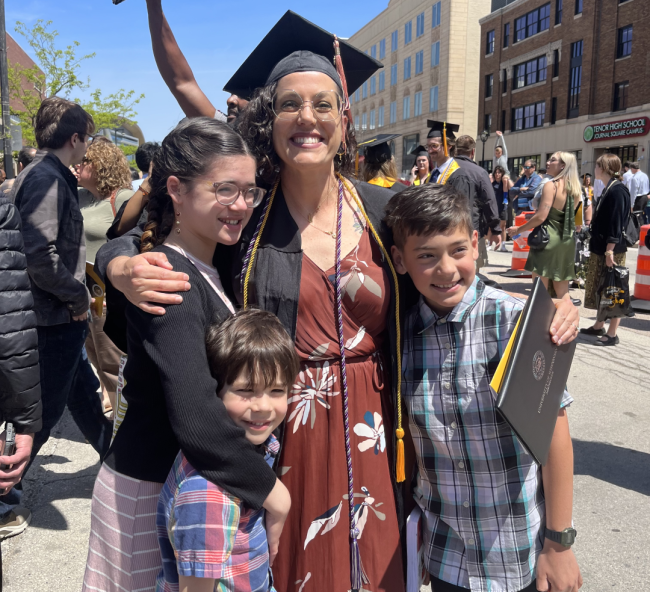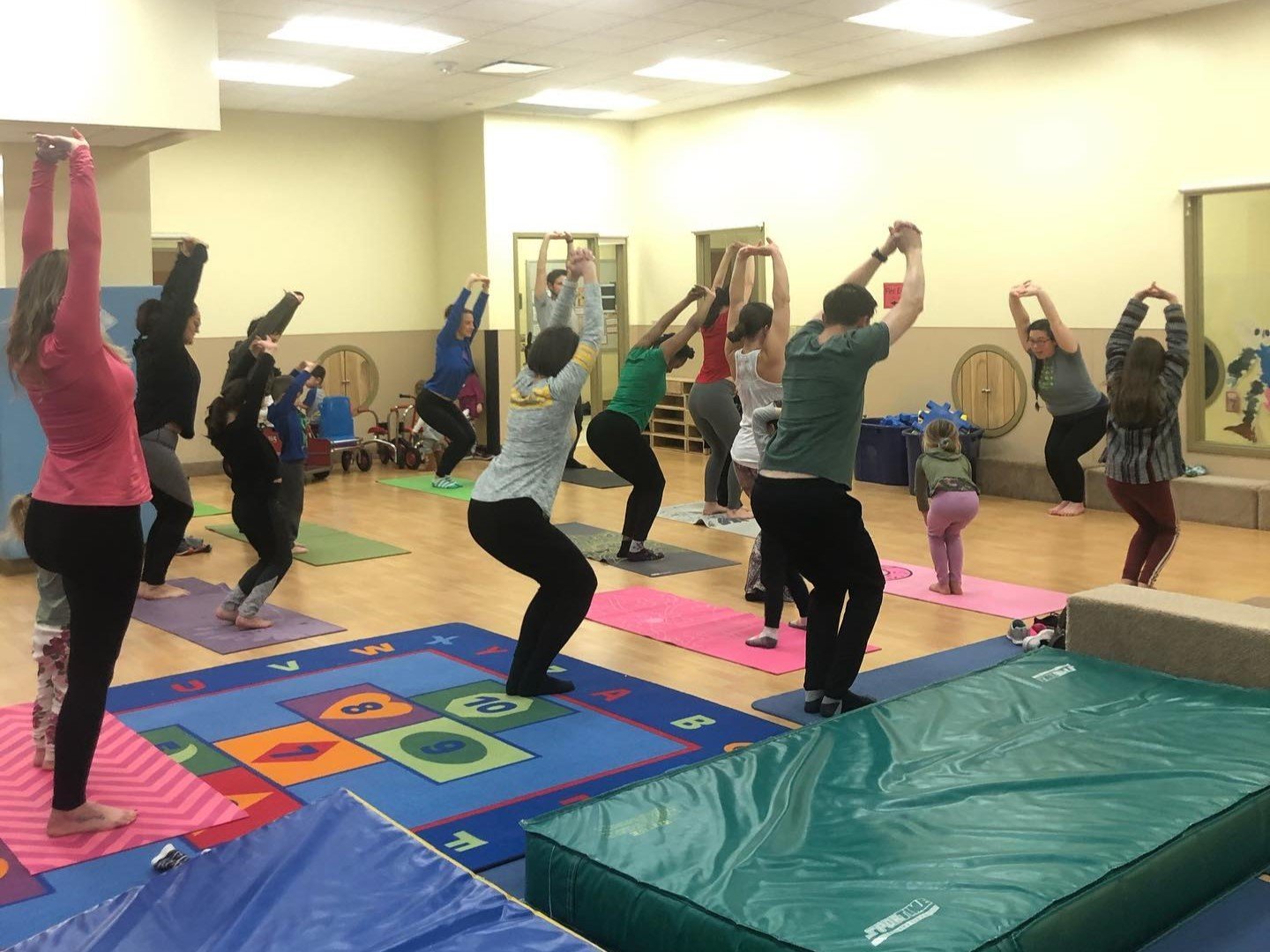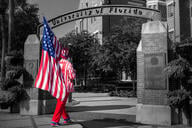You have /5 articles left.
Sign up for a free account or log in.

Rachel Goochey, a 2023 UWM alumna and incoming graduate student, participated in the Student Parent Success Program during her time as an undergraduate student, connecting with other student parents.
Rachel Goochey/University of Wisconsin at Milwaukee
To better serve student parents, the University of Wisconsin at Milwaukee offers a one-stop shop for resources and peer connection in the Student Parent Success Program (SPSP).
Relaunched in 2021 to expand offerings and the number of students served, the program gives student parents opportunities to receive financial help, access coaching and engage with other student parents to alleviate feelings of isolation and promote success.
“When we empower our parenting students to graduate and pursue not only their academic goals but also professional and career goals, they are improving the outcomes for not just themselves, but their whole family, as well as future generations,” says Rachel Kubczak, director of the Student Parent Success Program.
The roots: Around 1,300 students at UWM have children, according to the university’s FAFSA data, Kubczak says.
“When looking at the larger campus population, that is a small subset,” Kubczak says. “But student parents cross every school in the college; they cross every race and ethnicity. They’re everywhere, and so supporting [students] who have children is really important.”
In the UW system, Milwaukee is the only campus to have a dedicated office and staff position for student parent success.
Previously, UWM offered the Life Impact Program, a scholarship program for low-income students raising children supporting around 40 students annually.
In 2021, SPSP relaunched to be more inclusive to student parents at UWM, offering increased wraparound services and more community-oriented programming.
A campuswide survey found UWM student parents felt isolated from their peers, Kubczak explains. “Having a community of peers and engaging in those activities and events makes students feel less isolated, makes them feel more a part of campus.”
The program: SPSP resources include discounted day care, parent mentorship and community resources.
“We really try to be like a one-stop shop for families,” Kubczak says. “So that could be anything from academic coaching, success coaching, helping connect families with community resources, state assistance–type stuff.”
SPSP works with a local diaper bank to pick up 4,000 diapers and wipes monthly, which it places in UWM’s on-campus food pantry for all students to access.
In the past year, the program moved into the Children’s Learning Center facility at UWM, where the day-care center is housed, and that has doubled engagement. Half of the 305 day-care spots are reserved for UWM students, and CCAMPIS grant funding coupled with state day-care assistance makes the program affordable for student parents.
The move to the Children’s Learning Center also provides a generational lens to the work SPSP does, supporting children and parents’ education and development.
The program feature that brings students back time and time again is not a service, but the community, Kubczak explains. Many parents complete classes online or commute to campus, and SPSP events draw them into relationships.

Student parents spend time with their peers and children at the Yoga with Kids event, hosted by the Student Parent Success Program and the Children's Learning Center this spring.
The University of Wisconsin-Milwaukee
The center hosts a variety of family-friendly events including bowling, movie night, game night and, most recently, a parent-child yoga series. Often, other campus entities, like the women’s resource center or the library, partner with the center.
During parent education workshops, a campus community member or guest will present on a parenting topic like communication for de-escalating with kids or how to talk about race with children.
Food is provided at all the events, and childcare is often provided (if the kids aren’t directly involved in the activity), making participation hassle-free.
SPSP also works alongside student organizations, like the Student Parent Advocacy Committee, to connect with student parents.
Future growth: In the future, UWM is prioritizing meeting student parents as soon as they enroll or as they’re going through the admissions process to connect with them.
Identifying this demographic can be difficult, as UWM doesn’t require students to self-report their caregiver status beyond the FAFSA, Kubczak says. Even for those who are aware of the resources, encouraging them to participate can be a challenge because “there is a real sense of time poverty for parents.”
The program is also placing greater emphasis on support for students who may care for a younger sibling or a foster child, or those with another caregiver role that doesn’t fit the parent title but could use the same resources.
Additionally, Kubczak hopes to grow community and campus partnerships to meet a variety of student needs, like establishing a physical place for student parents to meet casually.
If your student success program has a unique feature or twist, we’d like to know about it. Click here to submit.




